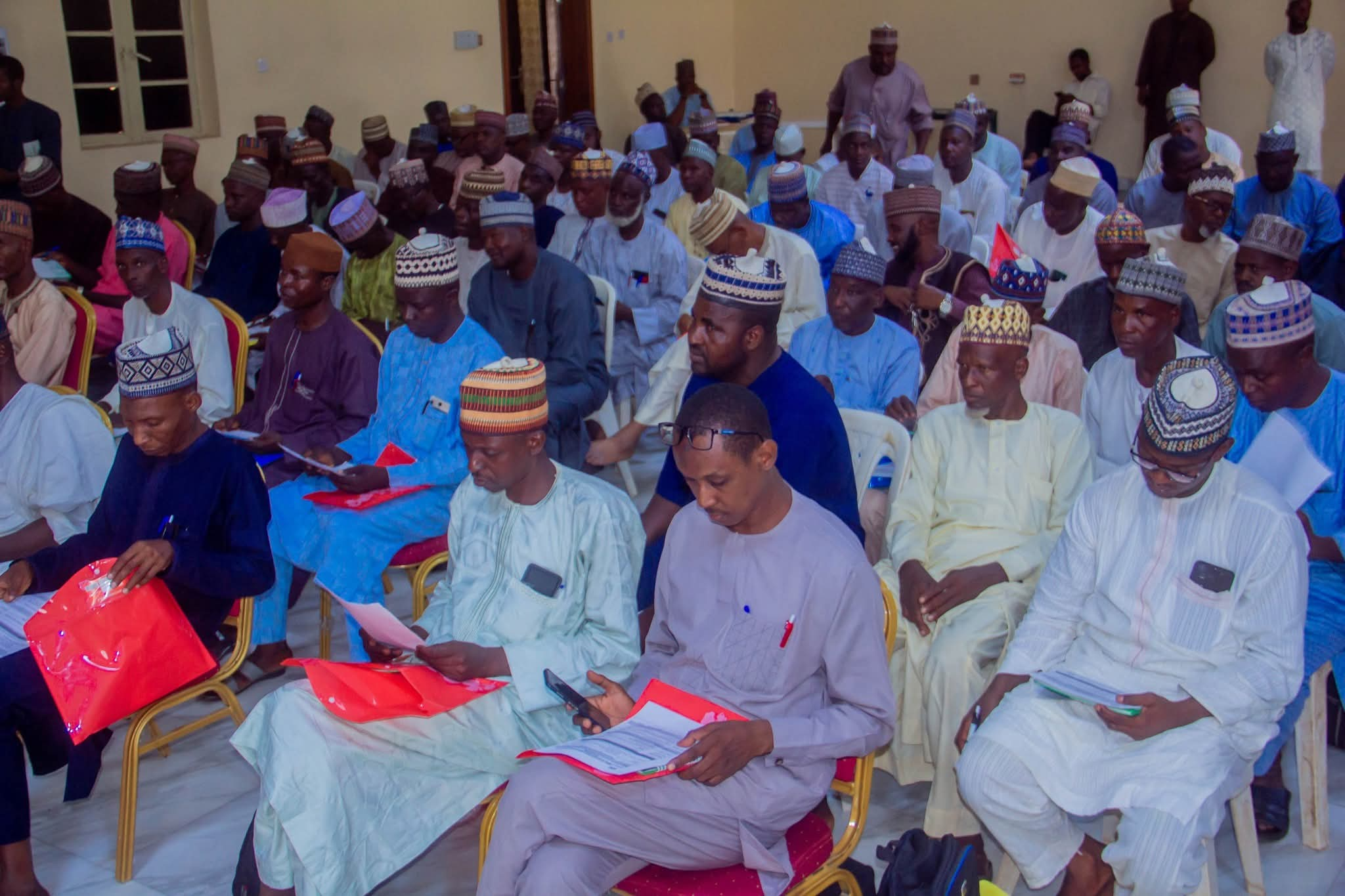Katsina SUBEB, UBEC Launch 6-Day Training to Enhance Literacy Through Digital Tablets

85 Master Trainers to Champion Education Reform Across Katsina State
By Zaharaddeen Ishaq Abubakar | KatsinaTimes
In a significant stride toward reforming basic education, the Katsina State Universal Basic Education Board (SUBEB), in collaboration with the Universal Basic Education Commission (UBEC), has commenced a comprehensive six-day training programme on the use of curated tablets for education officers under the Transforming Education Systems at the State Level (TESS) initiative. The training began on Monday, June 23, 2025, at the Katsina Guest Inn.
Organised under the Better Education Service Delivery for All Additional Financing (BESDA-AF) project, the programme aims to strengthen digital capacity and improve literacy outcomes in primary schools across the state. The training features 85 core master trainers, who are expected to cascade their knowledge to School Support Officers (SSOs), teachers, and other education stakeholders across Katsina’s 34 local government areas.
Delivering her keynote speech at the opening ceremony, Ummulkhairi Ahamed Bawa, Permanent Secretary at the Ministry of Basic and Secondary Education, who represented the Commissioner for Education, Zainab Musa Musawa, described the programme as a "strategic step in our collective journey toward educational transformation."
She stressed that literacy remains the bedrock of learning and urged participants to take their roles seriously, saying:
"You are not just trainees; you are catalysts for change. The knowledge and skills you acquire must be taken back to your respective zones and translated into tangible learning outcomes."
She commended UBEC and international project coordinators such as Dr. Alishin for their contributions to the TESS programme and reaffirmed the Katsina State Government's commitment under the leadership of Governor Dikko Umaru Radda to strengthening education.
In his remarks, Rabi’u Idris, Permanent Member of SUBEB Katsina, who represented the SUBEB Chairman, highlighted the transformation taking place within the state’s basic education system. He explained that the introduction of tools such as tablets, school performance dashboards, and lesson observation checklists has helped modernise the monitoring and evaluation process.
"We’re not just digitising education we’re institutionalising transparency and accountability," he noted, adding that outdated teaching practices are being replaced by curriculum-aligned and performance-focused methods.
He also praised the synergy between SUBEB, Local Government Education Authorities (LGEAs), and the TESS project, which he said will ensure the sustainability of reforms.
Speaking on behalf of the BESDA-AF programme, National Coordinator Alessi Olumayowa disclosed that the World Bank-funded initiative, which targets Oyo, Adamawa, and Katsina (OAK states), carries a budget of $123.8 million. He described Katsina as a frontrunner in the implementation of the project.
"This is a performance-based initiative. States earn financial incentives by meeting specific Disbursement-Linked Indicators (DLIs). Katsina has made remarkable progress, especially in teacher deployment and digital learning infrastructure," Olumayowa said.
Providing an overview of the training, Katsina State TESS Project Coordinator Binta Abdulmumini Ahamed explained that the current phase termed Gear Guide 2—focuses on digital onboarding, teacher support, and structured pedagogy.
The six-day programme is divided into two phases:
Days 1 to 3: Digital onboarding and introduction to tablet usage for SSOs.
Days 4 to 6: Separate targeted sessions for different education officers, including international collaborators.
The training will also cover effective data collection via the NX platform, teacher evaluation systems, and the use of curated self-instructional materials.
Since the start of the TESS project, significant milestones have been recorded:
Over 1,000 classroom blocks have been constructed or rehabilitated.
More than 7,000 teachers have been recruited and deployed, many to underserved communities.
School Improvement Grants (SIG) have enhanced infrastructure and provided instructional materials.
Inclusive education policies have promoted girl-child enrolment and access for children with disabilities.
Despite these achievements, officials noted ongoing challenges, particularly with inconsistent schemes of work and limited use of updated teaching resources.
Participants were repeatedly urged to return to their zones as literacy ambassadors. They are expected to train frontline teachers, mentor fellow officers, and promote the use of digitised content and evaluation frameworks to improve education delivery in every classroom.
The training is being implemented with support from national and international partners, including UNESCO’s Federal Government Education Authority (FGEA).

